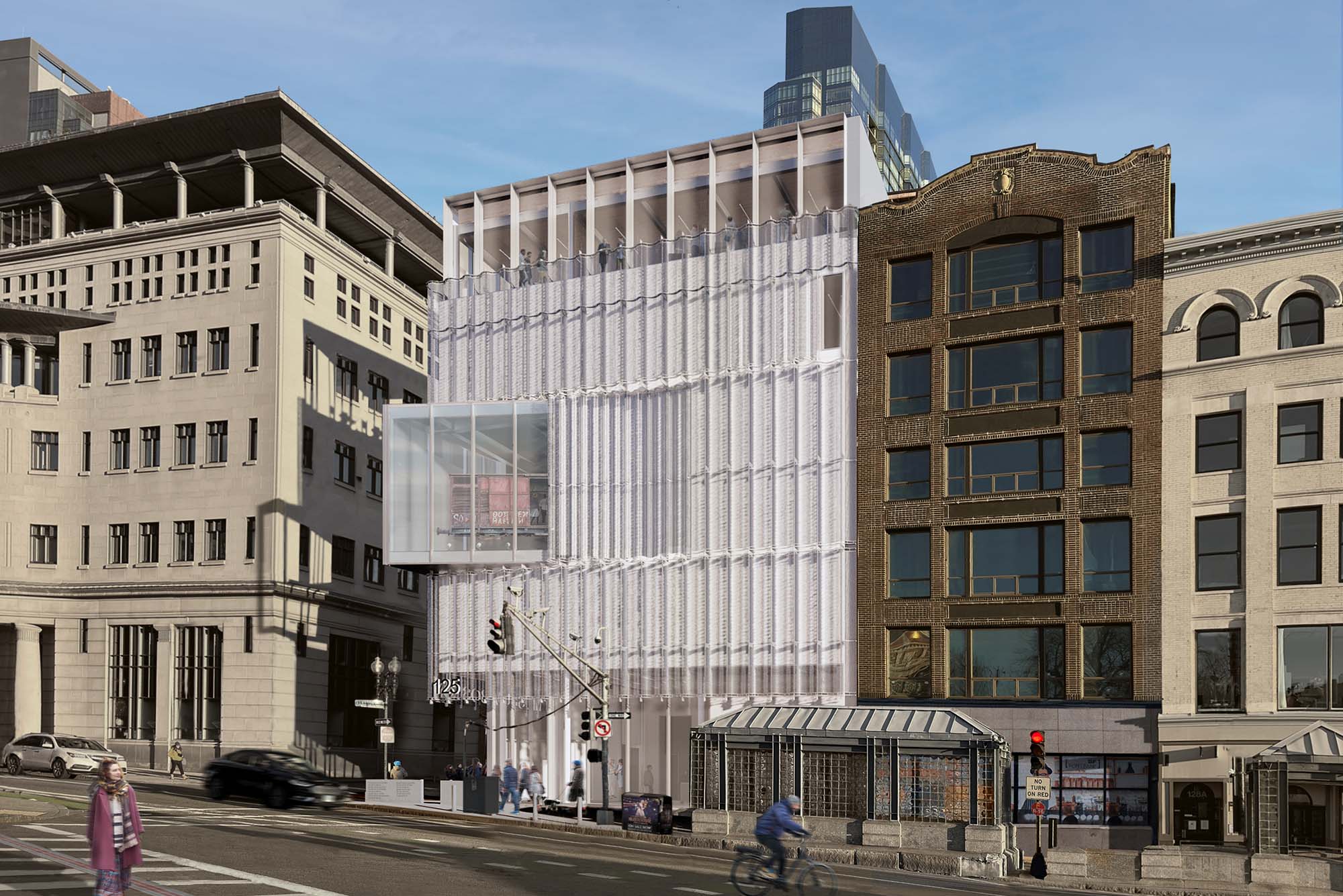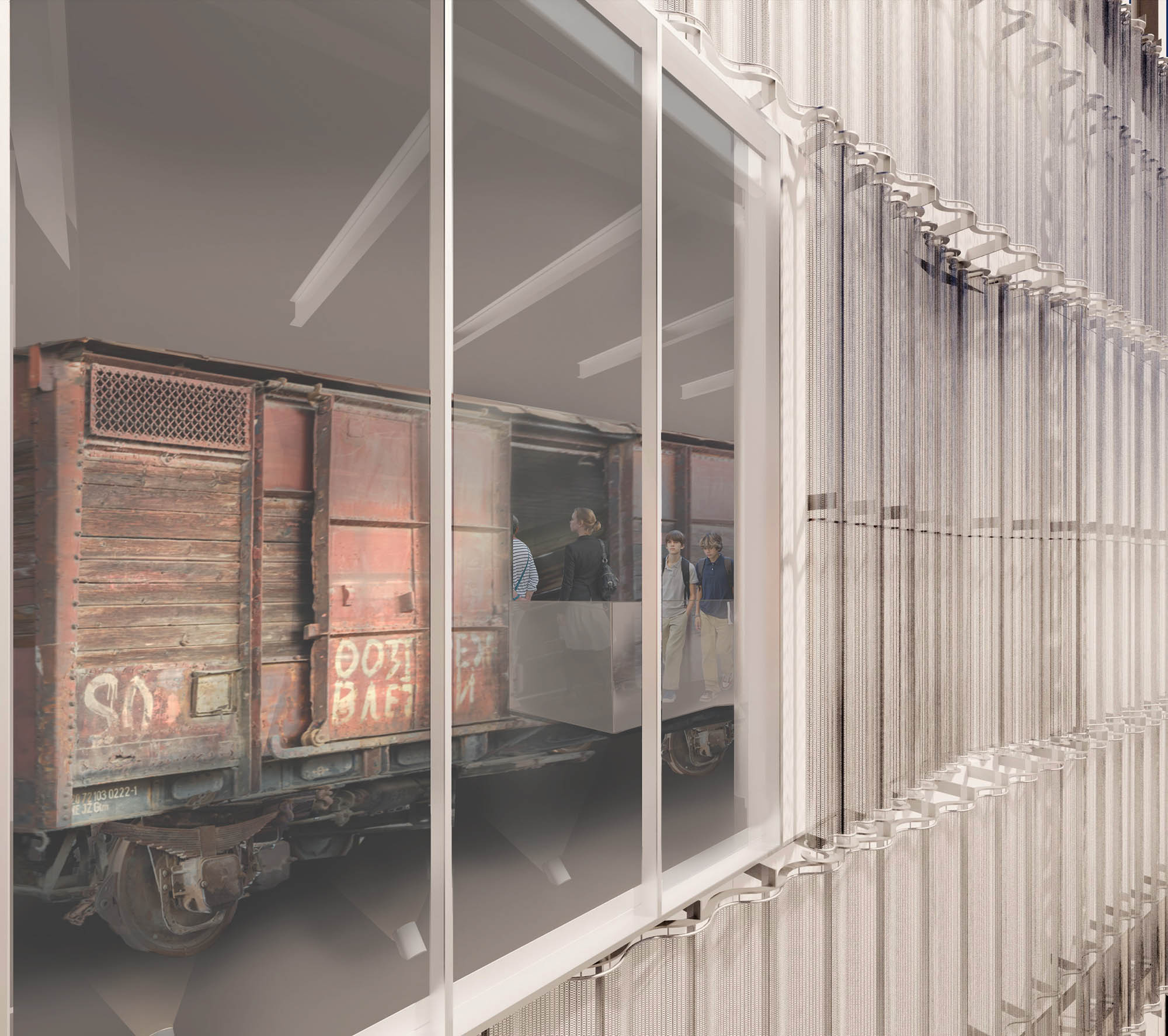Boston’s Proposed Holocaust Museum Should Win Approval, BU Wiesel Center Director Says
Amidst a surge in anti-Semitic incidents, it would provide an opportunity to create connections

Architectural rendering of the proposed Holocaust Museum and Educational Center at its planned location on Tremont Street in Boston. Photo courtesy of Schwartz/Silver Architects
BU Wiesel Center Director: Boston’s Proposed Holocaust Museum Would Educate and Inform about the Legacy of Genocide
Amidst a surge in anti-Semitic incidents, it would provide an opportunity to create connections
Museums typically fill the eye and mind with their indoor collections. But the proposed Holocaust Museum and Education Center along Boston’s Freedom Trail would begin educating passers-by with its exterior: it would be engineered with metaphor as well as metal.
The museum’s six stories would be covered in segmented stainless steel, evoking drawn curtains in German Jewish households during the Hitler regime’s ascent. The “curtains” would abruptly halt in one corner, exposing, in a window, a railcar that shuttled Jewish prisoners to Nazi death camps.
The USC Shoah Foundation, established by Oscar-winning director Steven Spielberg (Hon.’09), would collaborate with the museum in its Dimensions in Testimony Theater, a feature the foundation has sponsored in other Holocaust museums. The theater turns cutting-edge technology to the service of the past, allowing Q&As between visitors and Holocaust survivors—“even if the interviewee is no longer alive,” the Boston Globe reports.
Boston’s Holocaust Legacy Foundation wants to construct the museum off the Boston Common by the intersection of Tremont and Park Streets. City officials must approve the project. Boston’s New England Holocaust Memorial—50-foot illuminated glass spires along the Freedom Trail near Faneuil Hall, erected in 1995—is a poignant memorial to the six million Jews murdered by the Nazis. Would the museum add to that memory? We asked Nancy Harrowitz, director of BU’s Elie Wiesel Center for Jewish Studies and a professor of Italian and Jewish studies at the College of Arts & Sciences.
Q&A
with Nancy Harrowitz
BU Today: Boston has the New England Holocaust Memorial. Why is the proposed museum necessary and how will it add to our understanding of this cataclysm?
Harrowitz: A memorial is very different from a museum: a memorial is a reminder, meant to inform through a brief visual encounter, and to commemorate as well. There isn’t much space to deepen the individual experience by educating. A museum has the space to do exactly that: educate, inform, encourage empathy, and create connections through which people can think about the legacy of genocide and how it affects everyone.
A museum has the space to do exactly that: educate, inform, encourage empathy, and create connections through which people can think about the legacy of genocide and how it affects everyone.
BU Today: What do you think of the proposed design, in terms of its messages and meanings?
I find the design very interesting: it is both contemporary and symbolic in ways that I find intriguing. The boxcar, set against the incongruous background of a contemporary building, is a stark reminder that acts of brutality can take place within supposedly civilized society. I also like the views designed for the top floor, reminding visitors of their own freedom against the bleak backdrop of what they’ve experienced in their visit.

BU Today: Holocaust survivors are aging and rapidly dwindling in number. Can you comment on the importance of the proposed museum’s Dimensions in Testimony Theater?
I think encounters with survivors are very important, in whatever form they can take. It brings the message that these were individuals that suffered, rather than thinking of victims and survivors in terms of depersonalizing numbers. This is the same reason behind the importance of individual testimonies, whether filmed or literary.
BU Today: How important is the possibility of this museum amid the widely reported rise of anti-Semitic activity in Massachusetts?
It’s crucial to approve this museum, in the wake of rising anti-Semitic incidents, but also of hate crimes in general. One of the important lessons of the Holocaust and genocide studies is understanding what can happen to any group when bigotry is given free rein.
Comments & Discussion
Boston University moderates comments to facilitate an informed, substantive, civil conversation. Abusive, profane, self-promotional, misleading, incoherent or off-topic comments will be rejected. Moderators are staffed during regular business hours (EST) and can only accept comments written in English. Statistics or facts must include a citation or a link to the citation.